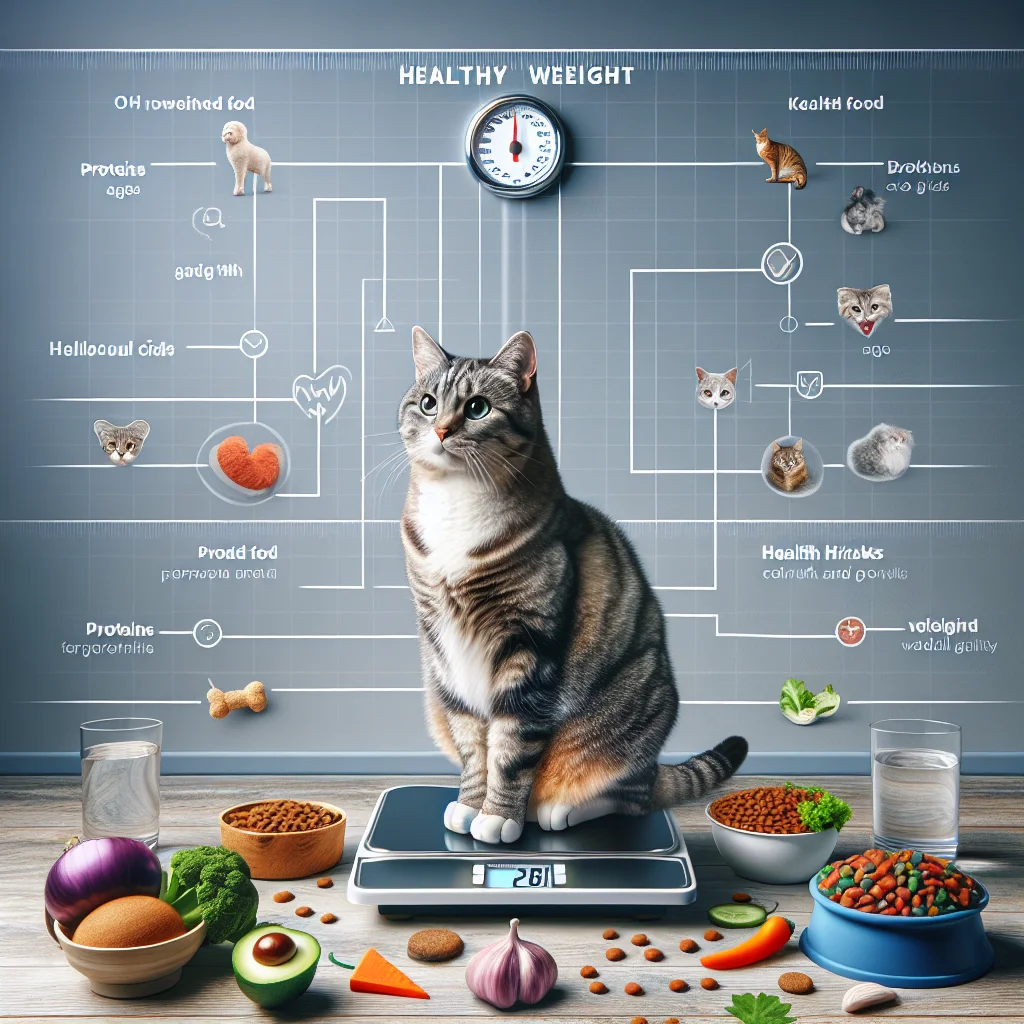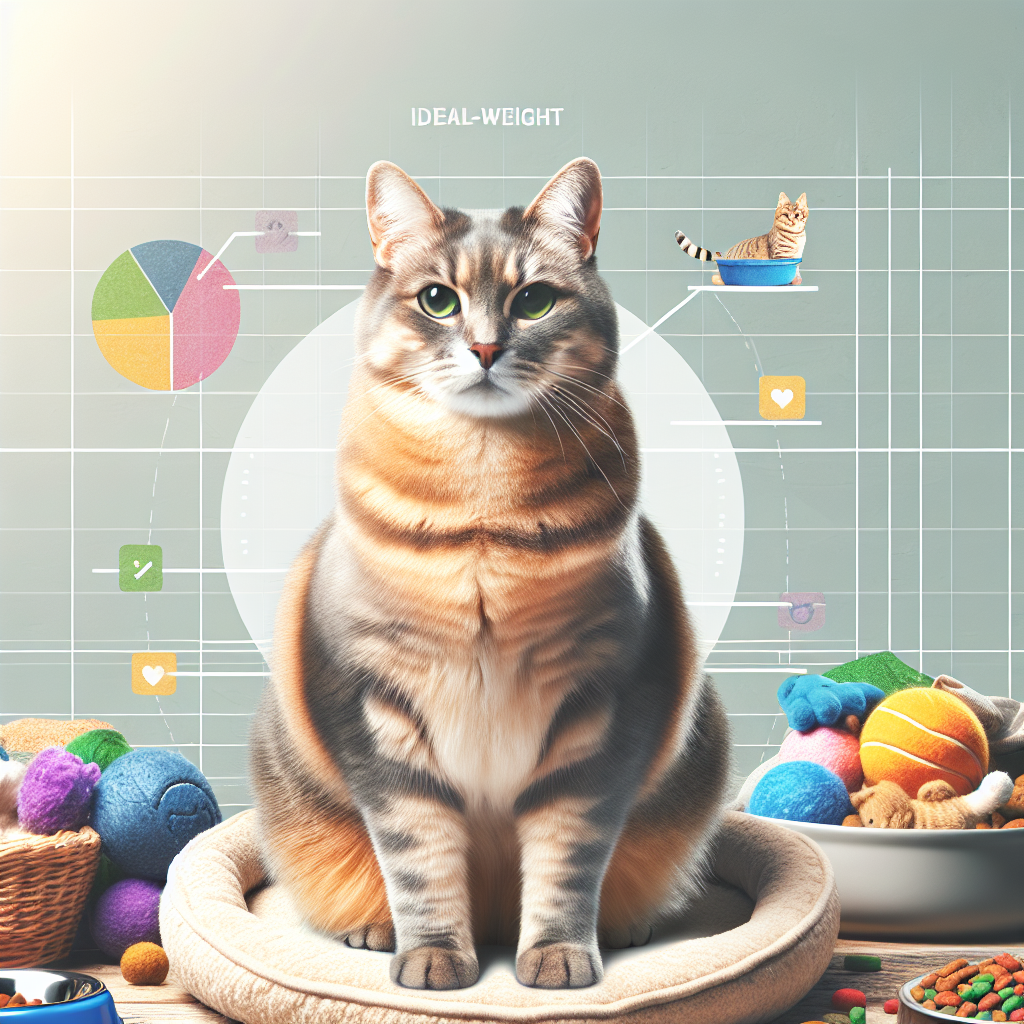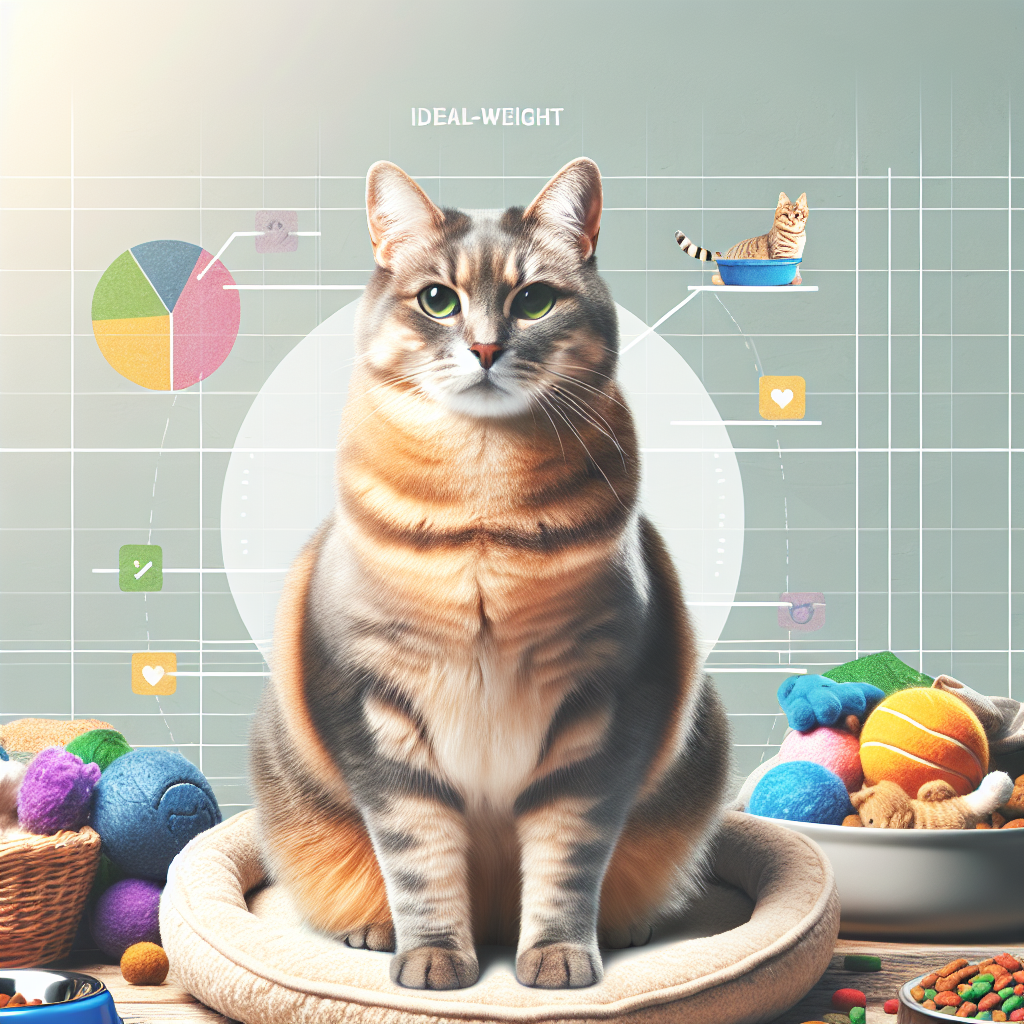Are you a proud owner of an adorable tabby cat? If so, then you’re probably wondering about the ideal weight for your feline friend. It’s common knowledge that our furry companions should maintain a healthy weight, but what exactly is the right number on the scale for a tabby cat? In this article, we’ll delve into the topic of the ideal weight for tabby cats, providing you with valuable insights and tips to help ensure your pet stays happy and healthy. So, grab a cup of tea, get comfy, and let’s find out just how much your tabby cat should weigh!
Understanding the Ideal Weight for a Tabby Cat
As a caring cat owner, it’s important to understand the ideal weight for your tabby cat. Maintaining a healthy weight is essential for their overall well-being and longevity. Similar to humans, cats can face various health issues if they are underweight or overweight. By understanding the factors that influence ideal weight, assessing your cat’s body condition, and implementing proper weight management strategies, you can ensure your furry friend leads a healthy and happy life.

Factors Influencing Ideal Weight
Several factors can influence the ideal weight of a tabby cat. These factors include breed and genetics, age and life stage, gender, neutering or spaying, as well as overall health and medical history.
Breed and genetics play a significant role in determining a cat’s ideal weight. Different cat breeds have different body types and sizes, leading to variations in their ideal weight range. For example, Maine Coon cats are generally larger and may weigh more than the average tabby cat.
The age and life stage of a cat also affect their ideal weight. Kittens and young cats require a different amount of nutrients and energy compared to adult or senior cats. As cats grow older, their metabolic rate changes, and their ideal weight may need to be adjusted accordingly.
Gender can also impact a tabby cat’s ideal weight. Male cats tend to be larger and heavier than female cats. Neutering or spaying can also affect a cat’s weight. Neutered or spayed cats often have a lower metabolic rate, making it easier for them to gain weight if not properly managed.
Lastly, a cat’s overall health and medical history should be taken into consideration. Some health conditions can lead to weight gain or loss. Working closely with a veterinarian can help identify any underlying health issues that may affect your cat’s weight.
Understanding Your Cat’s Body Condition
To determine your tabby cat’s ideal weight, it’s important to understand their body condition. Visual and physical assessments can provide valuable insights into your cat’s overall health and fitness.
Start by observing your cat’s profile. A healthy cat should have a slightly hourglass shape when viewed from above. If your cat appears too thin or too round, it may be an indication of an unhealthy weight.
Feeling the ribs can also help in assessing your cat’s body condition. Gently run your fingers over their ribcage. If you can easily feel the ribs without excess fat covering, it may signify that your cat is at a healthy weight. However, if the ribs are difficult to feel or have excessive fat deposits, your cat may be overweight.
Assessing fat deposits in different areas of the body is another way to evaluate your cat’s weight. Pay attention to areas such as the abdomen and the base of the tail. An ideal weight cat should have a slight layer of fat over their ribs, with a smooth, tucked-up abdomen.
Considering your cat’s size and build is also important when assessing their ideal weight. If your cat has a larger frame or a muscular build, their weight may naturally be higher than other cats of the same breed and age.
How to Determine Your Cat’s Ideal Weight
Determining your tabby cat’s ideal weight is not a task to be undertaken alone. Consultation with a veterinarian is vital in assessing your cat’s health and developing an appropriate weight management plan.
During a veterinary consultation, your veterinarian will consider various factors such as breed and body condition. They will examine your cat’s current weight and body composition, taking note of any trends in weight gain or loss. Standard weight ranges for specific breeds can also be used as a reference point.
Monitoring your cat’s weight trends at home can be helpful in identifying any potential issues. Regularly weigh your cat using a pet scale or consult with your veterinarian to measure their weight accurately. If you notice significant and unexplained fluctuations in weight, it is advisable to seek professional advice.
Evaluating your cat’s health and activity levels is another crucial aspect of determining their ideal weight. An active and healthy cat is more likely to maintain a healthy weight compared to a sedentary cat with underlying health issues.
Potential Health Issues Due to Unhealthy Weight
Both underweight and overweight cats can face a range of health issues. Understanding these potential problems can highlight the importance of maintaining a healthy weight for your tabby cat.
Underweight cats may experience problems such as nutritional deficiencies, weakened immune function, and reduced energy levels. They may be more susceptible to infections and recover more slowly from illnesses. Additionally, underweight cats are at a higher risk of hypothermia and may have difficulty regulating their body temperature.
On the other hand, overweight and obese cats are prone to a multitude of health problems. These include diabetes, heart disease, liver disease, arthritis, and respiratory disorders. Obesity puts additional strain on their joints, making movement and exercise more challenging. Furthermore, overweight cats may have a compromised immune system, leading to a higher risk of infections.

The Importance of Maintaining a Healthy Weight
Maintaining a healthy weight for your tabby cat is crucial for their overall well-being and longevity. A cat at a healthy weight is more likely to have reduced risks of various health conditions and diseases. Additionally, a proper balance of energy helps cats lead an active and fulfilling life.
By managing your cat’s weight effectively, you can improve their quality of life and enhance their immune function. A healthy weight promotes better organ function, cardiovascular health, and respiratory function. It also reduces the risk of joint problems and improves mobility and overall comfort.
Determining a Cat’s Body Condition Score (BCS)
To further assess your cat’s body condition, veterinarians often use a Body Condition Score (BCS) scale. This scale helps categorize cats into specific body condition categories, making it easier to understand their weight status.
The BCS scale typically ranges from 1 to 9, with 1 being severely underweight and 9 being severely overweight. By visually examining your cat and comparing their body shape and fat deposits to the descriptions on the BCS scale, you can gain a better understanding of their weight status.
It’s important to note that a cat’s body condition score should not be solely relied upon, but rather used in conjunction with overall health assessment and veterinarian guidance.
Guidelines for Optimal Weight Management
When it comes to managing your tabby cat’s weight, it’s essential to set realistic goals and create a balanced and nutritious diet. Here are some guidelines to help you in the process:
Set realistic weight loss goals: Aim for gradual weight loss to prevent health complications. Work with your veterinarian to determine an appropriate target weight and develop a timeline for achieving it.
Create a balanced and nutritious diet: Consult with your veterinarian to choose high-quality cat food that meets your cat’s nutritional needs. Ensure that the food provides a well-balanced mix of proteins, fats, and carbohydrates.
Meal portions and feeding schedule: Divide your cat’s daily food portions into multiple small meals throughout the day. Avoid free feeding, as it can lead to overeating. Follow the feeding guidelines provided by the cat food manufacturer or your veterinarian.
Avoid excessive treats and table scraps: While treats can be given occasionally, make sure to limit their quantity and choose healthier options. Avoid giving table scraps, as human food can be harmful to cats.
Feeding and Nutrition Guidelines
Choosing the right cat food and ensuring appropriate daily caloric intake are critical aspects of weight management. Here are some additional feeding and nutrition guidelines to consider:
Choosing high-quality cat food: Opt for reputable cat food brands that meet the nutritional standards set by veterinary organizations. Look for diets that are specifically formulated for weight management if your cat needs to lose weight.
Determining appropriate daily caloric intake: The right calorie intake for your cat depends on their age, weight, activity level, and overall health. Consult with your veterinarian to determine the appropriate number of calories your cat needs to maintain or reach their ideal weight.
Feeding frequency and meal size: Feed your cat small and frequent meals to prevent overeating and provide them a feeling of satiety. Divide the daily food portion into several meals throughout the day, following your veterinarian’s recommendations.
Ensuring sufficient hydration: Provide your cat with fresh, clean water at all times. Ensure that water bowls are easily accessible, especially during meal times. Proper hydration is important for overall health and helps maintain a healthy weight.
Avoiding human food hazards: Many human foods, such as chocolate, onions, garlic, and grapes, can be toxic to cats. Avoid feeding your cat any human food unless specifically instructed by your veterinarian.
Exercise and Physical Activity
In addition to proper nutrition, regular exercise and physical activity are vital for maintaining a healthy weight for your tabby cat. Engaging in playtime and providing opportunities for physical exercise can help burn calories and keep your cat active.
Offer various toys and interactive games that encourage your cat to move and play. Feather toys, laser pointers, and catnip-filled toys are popular choices. Engage in interactive play sessions with your cat using toys, encouraging them to jump, pounce, and chase.
Additionally, consider providing vertical spaces for climbing and scratching posts for exercise and mental stimulation. Encourage your cat to explore their environment by creating a cat-friendly and enriching indoor space.
Consulting with a Veterinarian
Regular veterinary check-ups are essential for your tabby cat’s overall health, including maintaining a healthy weight. Consulting with a veterinarian can provide invaluable advice and guidance throughout your cat’s weight management journey.
During health check-ups, your veterinarian can assess your cat’s body condition, weight trends, and any potential health issues. They can provide tailored recommendations based on your cat’s specific needs and outline the best weight management plan for them.
The veterinarian can also address any concerns you may have and answer any questions regarding your cat’s weight, diet, and exercise. Working closely with your veterinarian ensures that your cat receives the necessary support for maintaining a healthy weight throughout their life.
In conclusion, understanding the ideal weight for your tabby cat is crucial for their overall health and well-being. Factors such as breed, age, gender, and health conditions influence what the ideal weight should be. By assessing your cat’s body condition, determining their ideal weight, being aware of potential health issues, and implementing proper weight management strategies, you can ensure your cat maintains a healthy weight throughout their life. Remember to consult with a veterinarian for specific advice and guidance tailored to your cat’s needs. With your love and care, your tabby cat can enjoy a long and healthy life.

